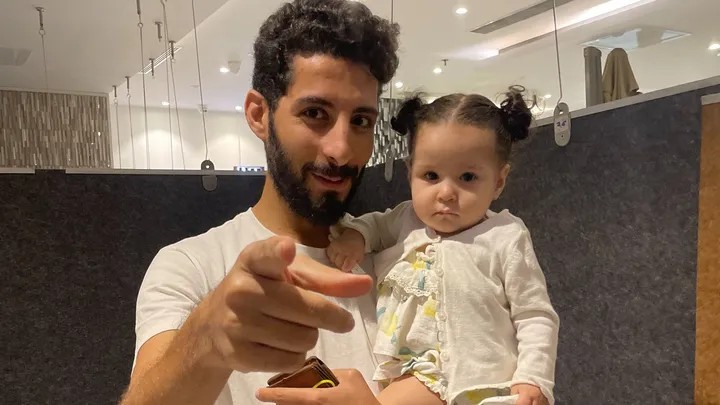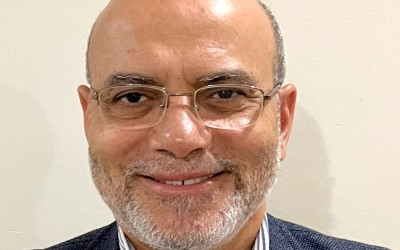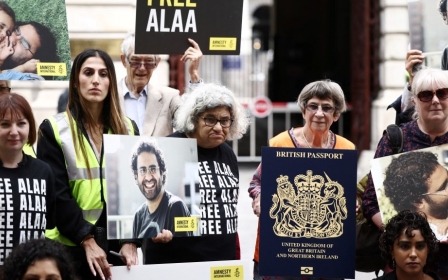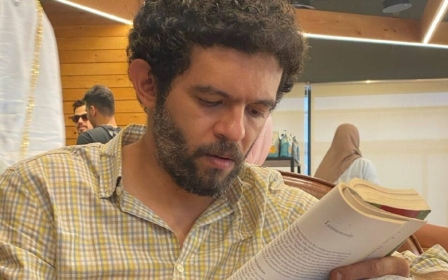Saudi Arabia to deport activist to Egypt where he faces torture and life imprisonment

Saudi Arabia is set to deport activist Ahmed Kamel to Egypt, where he faces a life sentence and torture for his role in pro-democracy protests in 2011 and 2014, rights groups have warned.
In 2014, Kamel was detained and tortured following his participation in mass protests, during which he was shot by riot police and left with long term health complications.
He was released on bail and then fled to Saudi Arabia, and has since lived in Jeddah.
On 10 December 2021, Kamel was sentenced in absentia to 25 years in prison for his involvement in the protests, on seven charges including incitement to demonstrate, organising a demonstration and possessing explosives.
“The only thing anybody would consider dangerous is possession of explosives, but he didn’t have any,” his wife, Sherryne Grace Badaoui told Middle East Eye.
New MEE newsletter: Jerusalem Dispatch
Sign up to get the latest insights and analysis on Israel-Palestine, alongside Turkey Unpacked and other MEE newsletters
Badaoui, an American citizen who married Kamel online prior to his sentencing, lives in New York with their two children, aged two years and 10 months.
Shortly after Kamel initiated the process of an American spousal visa application and visited the Egyptian embassy for a background check, he was arrested and detained following a "red notice" issued by Interpol in response to an extradition request from Egypt.
"Red notices" are requests filed by Interpol member states asking law enforcement agencies in other member states to locate and provisionally arrest wanted people. Member states decide whether to act on a red notice in accordance with their own laws.
After a three-day long detention at the Southern Jeddah police station, he was brought before the public prosecutor who informed him that the red notice was prompted by a kidnapping charge.
“That’s not listed in his charges on the Egyptian side, but that’s what Egypt was telling the world at the time,” Badaoui said.
The prosecutor asked Ahmed if he wanted to return to Egypt - he responded that he wanted to remain in Saudi Arabia and was subsequently released.
‘Nothing has happened’
Kamel did not hear from the authorities for another two years, until he received a call from the police station on 12 November 2024 instructing him to come in the following morning.
“He went to several different offices in the building, every office would tell him, we don’t know why you’re here, there’s nothing on your record,” Badaoui told MEE.
He was told to leave, but then received another call on his way back home summoning him again to the police station. He was then informed that he was being detained because Egypt had requested his extradition, but he wasn’t told on what charges.
Neither Kamel nor his family have seen the official documents relating to the Interpol red notice.
“He's never actually been given any documents, no papers. He has no records of his own, no copies, nothing,” Badaoui said.
But the family learned through unofficial channels that it was based on a murder charge, something Kamel had not been convicted for.
“I had to deliver the bad news [to Kamel] during a seven minute visit with our kids,” Badaoui said.
Kamel was held initially at the Southern Jeddah police station and then moved to Shumaisi immigration detention centre.
“He was told he was supposed to see a prosecutor on 15 November, and there would be a decision made. There has been no prosecutor. He's not gone to court,” Badaoui said.
“Nothing has been told to him or us, nothing has happened.”
Not political in nature
On Monday, a coalition of rights groups, including MENA Rights Group, released a statement calling for Kamel’s release, arguing that his extradition would violate the principle of "non-refoulement", as he would be at high risk of torture due to his role in the 2011 and 2014 protests.
"Non-refoulement", a principle which bars states from deporting anyone to a country where they are likely to be subjected to torture, is enshrined in the UN Convention Against Torture which both Egypt and Saudi Arabia are parties to.
The statement further highlighted that both countries are signatories to the Riyadh Arab Agreement for Judicial Cooperation, which governs extradition proceedings between signatory countries.
The convention stipulates that extradition cannot be done on the basis of political offences, but it excludes certain offences from being ‘‘political in nature", including assault on kings and presidents, and murder and robbery.
“Although [Kamel] was sentenced on charges that directly relate to participating in protests, now he's been informally informed that his new charges are of murder, and that's why he they're requesting for his extradition,” Tanya Boulakovski, human rights officer at MENA Rights Group told MEE.
“We think that [Egypt] saw that murder is on the list of these exceptions and that they arbitrarily attributed this charge to him,” she added.
According to MENA Rights Group, Egypt fabricates charges of theft and murder to orchestrate extraditions of activists living in exile.
“These are the two charges that are usually fabricated, when you see charges of theft or murder usually something fishy is going on,” Falah Sayed, Human Rights Officer at MENA Rights Group said.
An extradition campaign
In November, a Turkish-Egyptian dual citizen was detained for deportation to Egypt upon arrival in Morocco.
Dr Abdelbaset Abdallah Mohamed al-Imam fled Egypt in 2016 and was sentenced to life in prison in absentia for his social media activity.
“If Egypt is requesting alleged offences now, that occurred many years ago, maybe there’s some kind of campaign by Egypt to request extraditions, but we don’t know,” Boulakovski said.
“But it’s definitely been on our radar that the requests have been happening around the same time,” she added.
In 2019, a MEE investigation revealed Egyptian authorities attempts to extradite exiled dissidents using Interpol's red notice and diffusion alert systems.
A report jointly published in October by the Egyptian Human Rights Forum and the Egyptian Front for Human Rights, revealed that Egyptian security forces have ramped up their persecution of exiled human rights defenders in recent years.
The report found that the Egyptian authorities use extradition agreements with countries to allow for activists to be deported.
Rights defenders are also placed on terrorism lists, which means they are also placed on watch lists at airports and border crossings.
Middle East Eye delivers independent and unrivalled coverage and analysis of the Middle East, North Africa and beyond. To learn more about republishing this content and the associated fees, please fill out this form. More about MEE can be found here.






